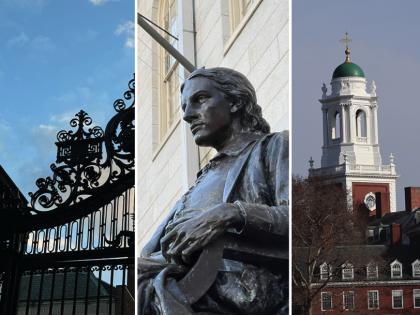It’s a time-honored practice among medical residents, cramming undergrads, and anyone else burning the candle at both ends: get very little sleep for days, maybe even pull an all-nighter, and then crash for an extra-long night of shut-eye to catch up.
Ten hours of sleep at once may indeed recharge us, and allow us to perform well for several hours after waking, according to research recently published in Science Translational Medicine. But “the brain literally keeps track of how long we’ve been asleep and awake--for weeks,” says Harvard Medical School (HMS) neurology instructor Daniel A. Cohen, M.D., lead author of the study. And that means that the bigger our aggregate sleep deficit, the faster our performance deteriorates, even after a good night’s rest.
Cohen and his coauthors monitored nine young men and women who spent three weeks on a challenging schedule: awake for 33 hours, asleep for 10--the equivalent of 5.6 hours of sleep a day. (This approximates the schedule of a medical resident, but many of us live under similar conditions; the National Sleep Foundation reports that 16 percent of Americans sleep six or fewer hours a night.) When the study participants were awake, they took a computer-based test of reaction time and sustained attention every four hours.
The researchers were surprised to discover just how much an extended rest boosted test performance. “Even though people were staying awake for almost 33 hours, when they had the opportunity to sleep for 10 hours, their performance shortly after waking was back to normal,” Cohen says. “The really interesting finding here is that there’s a short-term aspect of sleep loss that can be made up relatively quickly, within a long night.”
But the days and weeks of lost sleep eventually took their toll. The investigators knew from previous research that people awake for 24 hours straight display reaction times comparable to those of people who are legally drunk. Cohen’s new study reveals that those who pull an all-nighter on top of two or three weeks of chronic sleep loss reach that level of severe impairment faster--after just 18 hours awake.
Sleep researchers sometimes use the analogy of an hourglass to illustrate how we lose our ability to function as the day wears on. A good night’s sleep gives us a full ration of sand at the top of the glass; the grains begin to fall when we wake up, and “with each grain that drops, there’s an increasing level of impairment,” Cohen explains. The new study’s findings led its senior author, associate professor of medicine Elizabeth Klerman, to refine the analogy: “She says chronic sleep loss essentially enlarges the hole between the halves of the hourglass, so the sand falls a lot faster. That means you can be fully restored [by a long night’s sleep], but you peter out very quickly.”
Cohen’s study also revealed valuable information about how circadian rhythms influence our responses to sleep deprivation. The researchers determined that hitting the body’s circadian high (from about 3 p.m. to 7 p.m. for most people, when levels of the hormone melatonin are lowest in the bloodstream) can effectively mask the effects of sleep loss on performance--suggesting why chronically sleep-deprived individuals may not feel very sleepy for much of the day and think they’re sufficiently rested. To make matters worse, Cohen says, “Prior research shows that people start to overrate how they perform when they’re chronically sleep deprived.” But the inevitable circadian low (roughly 3 a.m. to 7 a.m., when melatonin levels are highest) magnifies the effects of sleep loss, slowing reaction times by a factor of 10--one reason overnight drivers, for example, are especially prone to errors.
Scientists don’t yet know how long it takes to overcome a long-term sleep debt. “It certainly takes longer than three days,” Cohen says. “It could even take up to a couple of weeks of a normal sleep schedule before people are fully caught up”--an important fact for people with safety-sensitive jobs to know, so they can make adequate sleep a priority. He admits some trouble with this himself, especially during his medical training. “But since I’ve been in the sleep field,” he says, “I’ve tried to shoot for closer to eight hours per night.”








